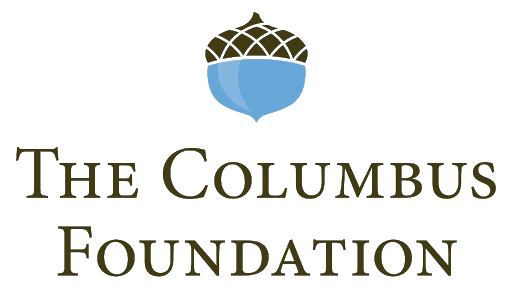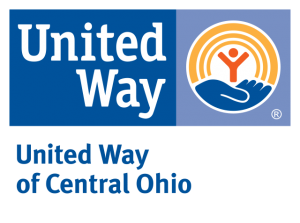Ryan Scott concluded Columbus Startup Weekend with a potential solution to a serious issue, but he didn’t have a lot of help. A few of his teammates from that weekend continued to meet and work on the idea, but for the most part, he was on his own.
However, Ryan never considered giving up, as his passion and dedication to his idea had stemmed from a tragic personal loss. While he and his young family lived within the walls of Nationwide Children’s Hospital, he saw other children and families whose lives had been transformed into a battle against a major illness. “Even on our worst days living our new reality, we still witnessed kids and families having worse days,” Ryan said.
Ryan never forgot his experience and was compelled to do something to help; specifically alleviating the fear and anxiety felt by children dealing with a serious physical illness.
His team spent their time during Columbus Startup Weekend talking to kids, parents, and clinicians. They quickly realized that in addition to fear, children also dealt with loneliness, isolation, and an inability to feel comfortable enough with loved ones to be completely transparent about how they were feeling. Ryan devised a way to help these children with modern technology, envisioning a digital friend that kids could talk with 24/7 about how they were feeling. This program would provide a judgement-free space for constant conversation during this difficult time, and could also provide mental health support by utilizing cognitive behavioral therapy modules. At the time, it was called Brave Buddy.
“Imagine your child has an age-appropriate imaginary friend, who just happens to respond like a licensed psychologist,” Ryan explained. “Unlike most digital products available to kids within hospitals, we’re not trying to simply distract them. Instead, we’re using evidence-based methods to help kids address the underlying cause of their fears, learn positive coping skills, and build resilience.”
Despite the forward progress made during Columbus Startup Weekend, Ryan still needed help. At the time, Brave Buddy was a simple augmented reality character akin to the Tin Man, but it still needed a heart.
As the annual Columbus GiveBackHack event approached, Ryan looked at it as a way to assemble a talented group of people that could help him take his idea to the next level, and gain community support for his concept. After a weekend of intense work, Ryan presented his idea, and his team was one of the four selected by GiveBackHack to receive funding, validating his assumptions that people really wanted to help provide support to children in need of psychological assistance. In addition to funding, winning at GiveBackHack provided centralized coworking space and the opportunity to attend the Wells Family Foundation Executive Education Program. Here, Ryan was educated on a wide range of topics including social enterprises, social impact investors, and benefit corporations.
Today, Ryan’s company is called Bonifier (pronounced Bun-if-ee-ay, a French word meaning ‘improving’), and Brave Buddy is now known as Pip. Though the names have changed, Ryan’s devotion to his project has not.
“1.7 million kids are treated each year for major illnesses,” Ryan explained, “and less than one-third receive mental health care during their treatment.” Ryan further clarified that some of the children that do receive mental health attention may only receive a single visit from a psychologist, rather than full-time therapy.
There are a few obstacles in the way when it comes to giving sick children the mental health care they need. One is time. Parents, friends, and caretakers can’t be around 24/7, so a sick child will spend frequent periods of time alone in a hospital. Another obstacle is money. Child psychologists are expensive, and many parents simply can’t afford it on top of an already overwhelming stack of medical bills.
There are other tech solutions that are designed to help children with serious illnesses, but as Ryan explained, most of them are games or other types of distractions, and don’t help with the reality of the situation.
“Once that game or experience is over, the child still has to face reality,” Ryan said.
But, with Pip, the child can engage with it any time they’d like. Additionally, studies have shown that digitally delivered cognitive behavioral therapy is just as effective as talking with a real therapist. Kids are also more likely to tell the truth to a non-human companion about their physical and emotional state.
After GiveBackHack, Ryan and his team were accepted into the SEA Change accelerator. Bonifier ended up winning the 2nd highest amount of money, as well as in-kind legal support and continued co-working space at Cova Cowork. The money will be used to evolve Pip from a MVP into a functional prototype.
“I don’t know if we would have been accepted into SEA Change without GiveBackHack,” Ryan said, “but without the two programs I know we wouldn’t have made it this far.”
Ryan’s next steps are to add to Bonifier’s advisory board, contract developers, and to continue talking with kids, parents, child psychologists, and doctors about how Pip can best help pediatric patients.
Bonifier is forming as a Delaware for-profit benefit corporation, and Ryan is currently looking for any help he can get. “I never turn down getting coffee with smart people or subject matter experts,” he said.
If you’re interested in Bonifier or Pip, call 614-943-4824 or send an email info@bonifier.life.



